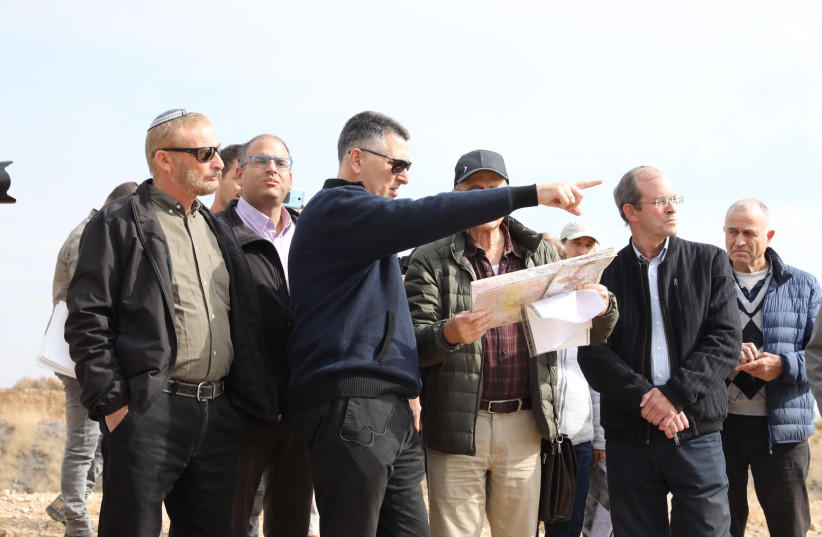After a 48-hour delay, Prime Minister Naftali Bennett's government is slated to give its first public statement on Tuesday to the High Court of Justice regarding the fate of the small illegal Bedouin West Bank herding village of Khan al-Ahmar.
Bennett has long advocated for evacuating the community of Jahalin Bedouin perched on the edge of Route 1, below the Kfar Adumim settlement not far from Jerusalem.
His coalition, however, is divided on the issue. Disputes regarding the response caused the state on Sunday to ask for a 48-hour delay.
The international community has pressed Israel to allow the community to remain in its current location. Former International Criminal Court chief prosecutor Fatou Bensouda had warned that its forced relocation could be a war crime.
The Right, which has pushed for the village’s relocation, has been concerned that a plan is in the works to relocate the community by just 300 meters to the opposite side of Route 1.
The right-wing Jerusalem Envelope Forum said that this latest initiative was essentially a decision to leave the community in its current location.

In 2019, the right-wing NGO Regavim petitioned the court to force the state to relocate the community away from the area, so that it can be preserved for Jewish development. It’s the latest move in a protracted legal battle that dates back some 12 years.
Regavim has argued that the community’s presence near Route 1 is part of a strategic Palestinian Authority plan to ensure that the territory will become part of the final borders of a Palestinian state.
The Khan al-Ahmar community of some 180 people, belong to the Abu-Dahuk clan, was exiled by Israel from the Negev in the 1950s.
The clan relocated to the West Bank when it was ruled by Jordan and settled in the current location in the 1970s without receiving any authorization from the Civil Administration.
The Khan al-Ahmar community has insisted that it wants to remain at this site. The Civil Administration has rejected attempts by the community to submit master plans that would allow for it to be legalized.
Regavim said that the state’s request for a delay was in line with its continued refusal to relocate Khan al-Ahmar.
“The state waited nearly until the stroke of midnight, perhaps hoping that Khan al Ahmar would turn into a pumpkin or that Regavim would disappear – but neither of those things has happened," the right-wing NGO said.
“Once again, the government has asked to push off making a decision for a few more days.”
On Monday, the Jerusalem Envelope Forum said that Bedouin in the area of the Ma’aleh Adumin and Kfar Adumim settlements continue to build illegally in IDF firing zones. The forum charged that there was a new encampment on the edge of Nahal Og and a new structure in Nabi Musa. Left-wing activist Dror Etkes tweeted that the Nahal Og construction had been there since 2014.
